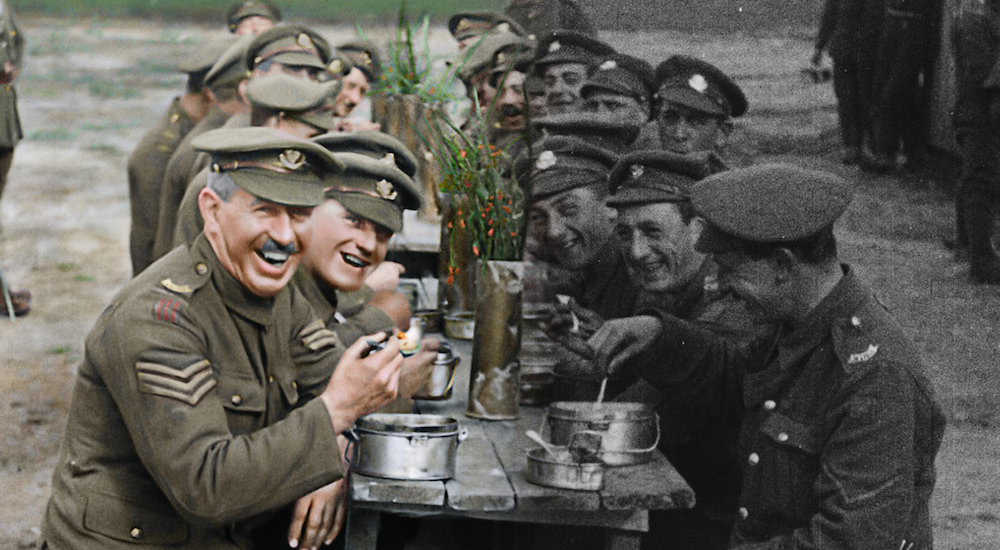The Great War seems even longer ago than it is. Unlike World War II and Vietnam, which are always in the public consciousness thanks to an endless number of films and History Channel specials, the first global conflict often feels like a chapter we learn about in history class, but nothing more.
But hopefully that will start to change with They Shall Not Grow Old. Peter Jackson has truly brought the past to life. By not just restoring old footage, but meticulously colorizing and converting it to 3-D, his team have made not just a fascinating documentary, but a public service as well.
As Jackson explains in his intro, he used only the video available, and culled audio from thousands of hours conducted by the BBC in the 1960s and 70s, getting perspective on surviving the war from men old enough to reflect on their experiences, but not so old they'd forget them.
The film begins in black and white, as men relay the excitement they felt as they lied about their age to enlist. It's a bit sluggish to start. But when the footage switches to color when they arrive on the battlefield, the wonder turns to horror, as men relate at least a dozen ways to die, only one of which is enemy gunfire. The trench warfare left them with squalid conditions: rats were everywhere, their bathroom was a literal pit, and gangrene was common.
But there's also an exploration of the camaraderie among not just the British troops, but among the Germans they captured as well. It's a universal truth of war: men are sent to fight, killing each other for almost no discernible purpose. But in the most dire of circumstances, they band together.
They Shall Not Grow Old is moving tribute to the men who served. As Jackson mentioned in his intro, while this focuses on the British troops, these were shared experiences. This documentary is one you should share as well.

